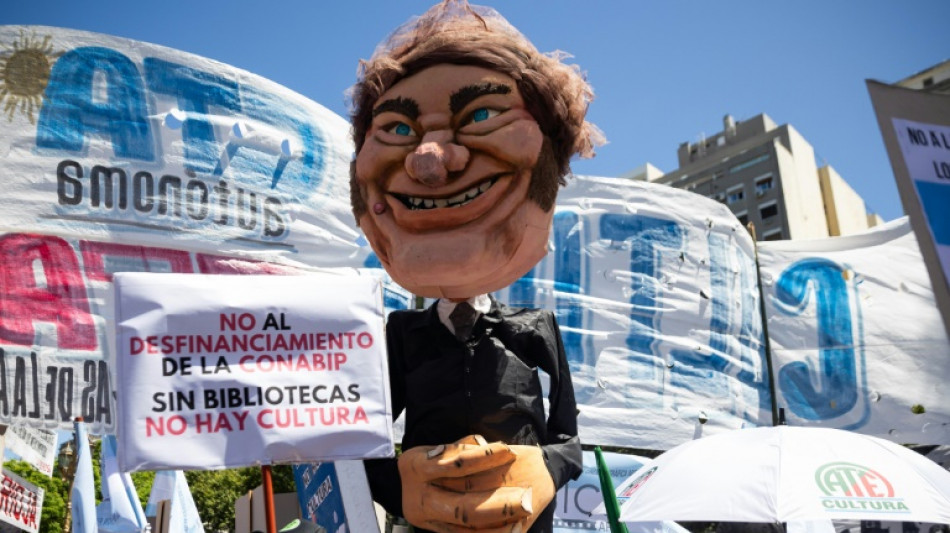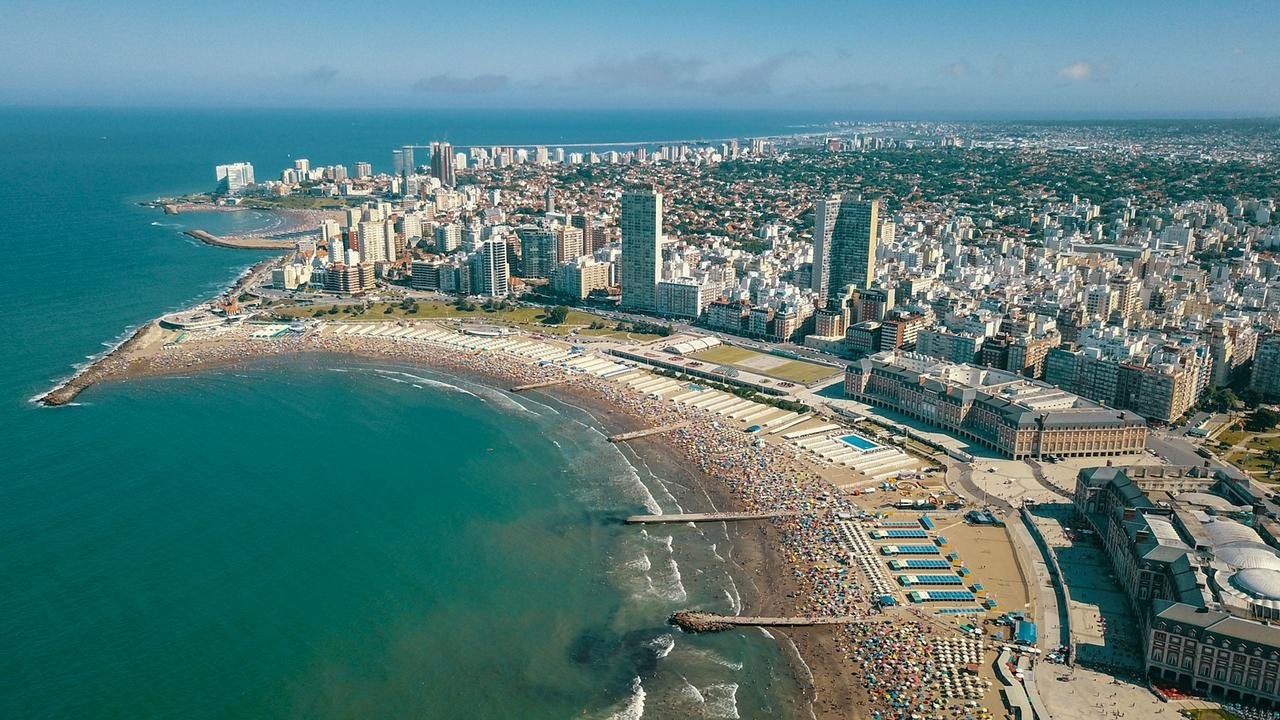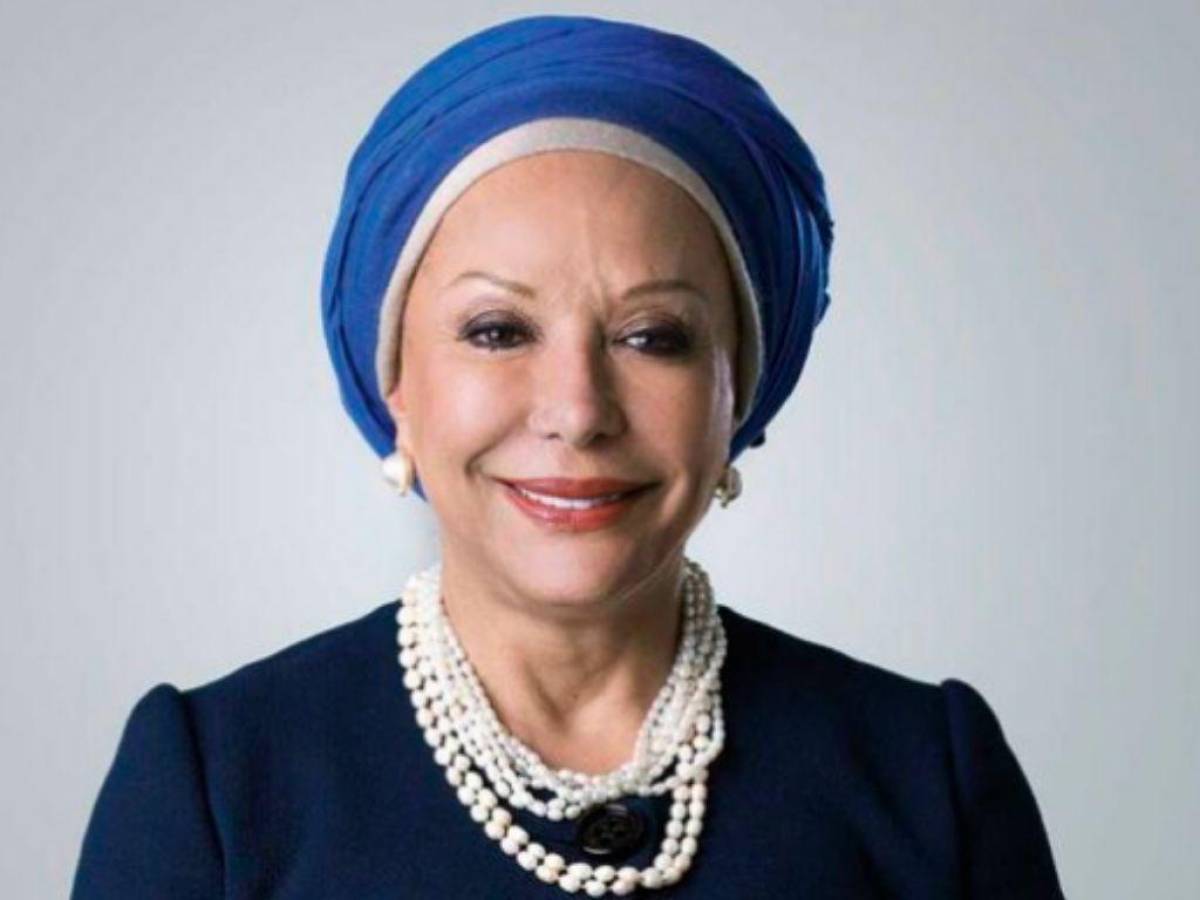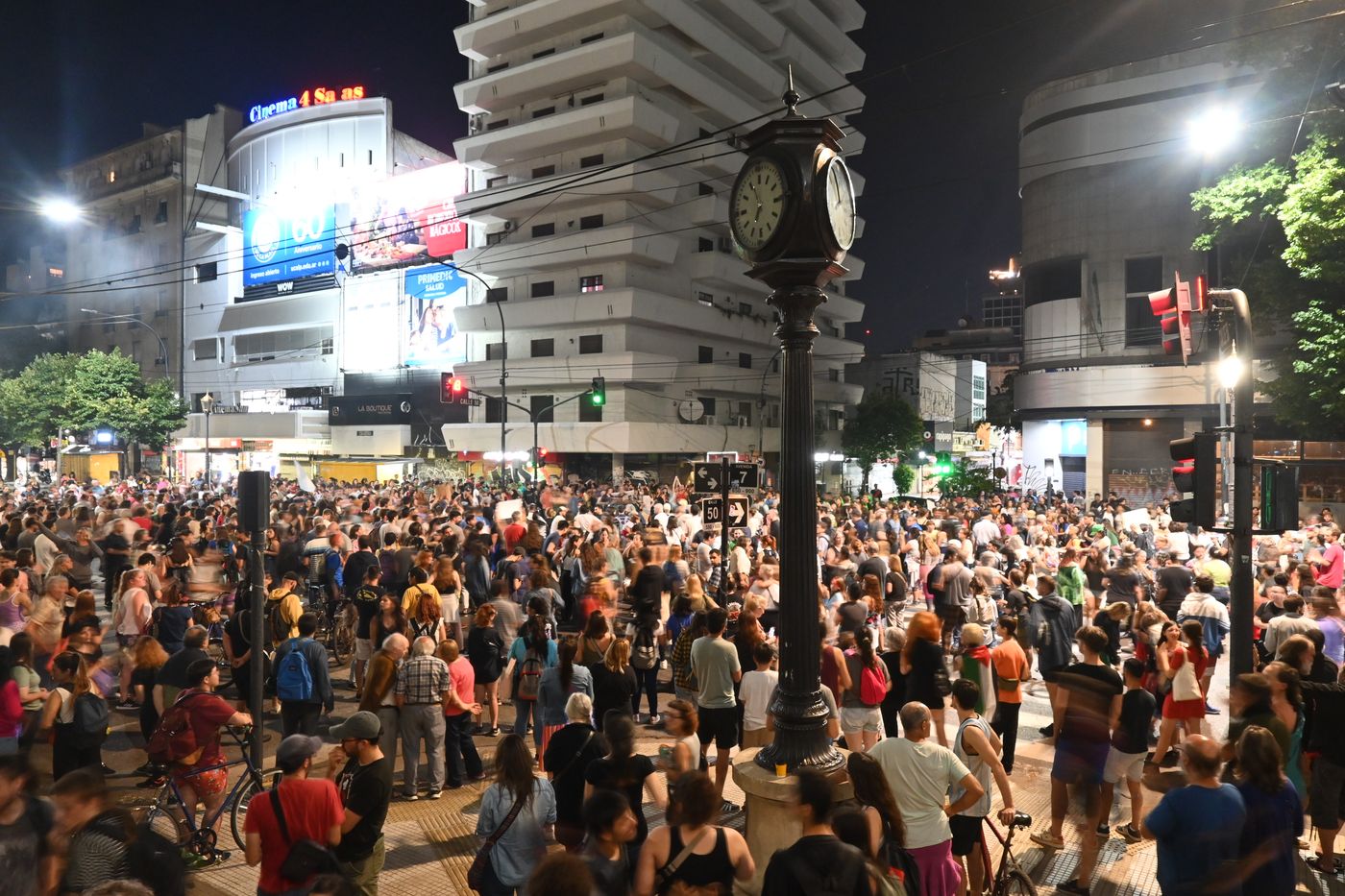peppertree
peppertree's JournalArgentina's Mileise: Poverty hits 57%, highest number in 20 years
Argentina’s poverty rate reached 57.4% in January according to a new report by the Argentine Catholic University’s respected Social Debt Observatory.
It’s the highest poverty number since 2004, when the observatory began publishing reports, amid widespread economic deregulation and price hikes.
“Our perspective is that this will keep getting worse in February,” the observatory’s Director Agustín Salvia told the Herald. “The crisis is about to explode in systemic terms.”
According to the report, which analyzed the inflationary effects of the 54% Argentine peso devaluation in December, poverty rose from 44.7% in the third quarter of 2023 to 49.5% in December, then 57.4% in January.
Salvia said there is “a generalized impoverishment of Argentine society” as a result of “a decrease in real salaries” as well as “a high risk of losing jobs” and the devaluation of the peso. “Households can’t compensate the effects of inflation on the food basket with working more hours, like they did in 2023.”
“The working class and middle class who don’t receive any welfare suffered the biggest increase [in poverty levels],” the report said.
The observatory also found that 15% of Argentines are destitute (unable to afford a basic food budget) — the highest since 2004. Destitution afflicted 9.6% in the third quarter of 2023 and 14.2% in December, and went up even more in January “due to the increase in the cost of the basic food basket.”
At: https://buenosairesherald.com/society/poverty-in-argentina-hits-57-highest-number-in-20-years-report-says
Children enjoy a meal in a soup kitchen in Villa Fiorito, an impoverished Buenos Aires suburb, recently.
As real wages plummet and unemployment rises, demand in the nation's 41,000 soup kitchens has jumped 30% since far-right President Javier Milei was elected in November.
Milei, however, has effectively ended federal assistance to these centers - which now rely solely on provincial subsidies and private contributions.
The rise in income poverty from 44.7% in the third quarter 2023, to a shocking 57.4% in January, has only been seen twice in Argentine history - during collapses in 1989 and 2002.
As Argentina's favorite vacation spot celebrates 150 years, gloomy times for vacationers in Mar del Plata
The seaside city of Mar del Plata celebrated 150 years from its founding by a beef jerky maker seeking to diversify into real estate - having since grown into Argentina's favorite vacation spot with a record 9 million arrivals in 2023.
But this summer they are few, tight-fisted and downcast. This year's trickle of vacationers to Mar del Plata is a dreary reflection of the country's economic woes.
With monthly inflation having tripled to 25% since far-right President Javier Milei was elected in November, few can afford to let their hair down.
In a normal year, this would be impossible between the tens of thousands of bathers gathered over vast stretches of beach in the town, some 250 miles south of the capital Buenos Aires.
Most years, in the high season between Christmas and February, the seaside resort receives six times more tourists than its 680,000 permanent residents.
This summer, the city is half-empty. Occupancy was only at 60% in the first half of January, according to Mar Del Plata's hotel association.
At the bus terminal, out of 42 platforms, only three are occupied by long-distance transport. Outside, the line of cabs waiting for passengers continues out into the street.
"Last summer, I did at least 30 trips a day. Now I'm happy if I get to 15," sighs taxi-driver Daniel Molina, one in a long line of idle cars awaiting customers near a bus stop.
"It's a lost season. Look at how it is,” he says, pointing to the quiet streets. “It's dead!"
At: https://batimes.com.ar/news/argentina/it-makes-me-sad-gloomy-times-for-vacationers-in-mar-del-plata.phtml
Aerial view of Mar del Plata, which celebrated its sesquicentennial today.
The city - long Argentina's top vacation spot - has been hard-hit by the recent "Mileise."
The country's already-struggling economy has collapsed since Javier Milei was elected two months ago, as businesses began taking advantage of price deregulation bills well before their (now unlikely) passage - raising retail prices by 25.5% in December alone and wholesale prices by an astonishing 54%, while wages rose only 8.3%.
Crisis for Argentina's Milei: omnibus bill sent back to commissions over lack of support
Argentina’s Lower House unexpectedly cut short what was expected to be a marathon debate on President Javier Milei’s Omnibus Bill, sending the entire bill back to commissions.
The move means that prior progress — including being approved as a whole on Friday on a 144 to 109 vote — has been voided after weeks of intense negotiations.
When they reached the privatization chapter, Mileist Congressman Deputy Gabriel Bornoroni asked for a 15-minute recess which lasted more than 45 minutes. The session resumed and Oscar Zago, head of Milei's LLA caucus, asked that the whole project be sent back to the commission - a motion that was approved immediately.
Earlier on Tuesday, deputies had approved articles that would have given certain legislative powers to the president if the bill were approved by the Senate.
However, since it’s getting booted back to commissions those votes are now void per Article 155 of Argentina's Lower House protocol.
The country's already-struggling economy has collapsed since Milei was elected two months ago, as businesses began taking advantage of price deregulation clauses well before their (as-yet uncertain) passage - raising retail prices by 25.5% and wholesale prices by an astonishing 54% in December alone, while wages rose only 8.3%.
At: https://buenosairesherald.com/politics/back-to-square-one-mileis-omnibus-bill-returned-to-commissions
Far-right Argentine President Javier Milei cries at Jerusalem's Wailing Wall during his state visit today.
While the Lower House had voted to advance Milei's wide-reaching deregulation and privatization bill, lawmakers today balked at giving the increasingly erratic Milei "emergency" powers.
The voting down of any of the provisions in the behemoth "omnibus" bill automatically sends the package to square one.
The setback is unprecedented in the country's 40-year modern democratic history, exposing what congressional opposition leader Gerardo Martínez called "a lack of understanding of congressional procedure" - by Milei, as well as by his cabinet and advisers.
Milei himself appeared to confirm this haplessness by pledging to submit the bill to a "plebiscite" - while apparently ignorant of the fact that it would be non-binding.
Argentine human rights groups file complaint against government in IACHR
Two human rights organizations and two press unions filed a precautionary measure before the Inter-American Commission on Human Rights (IACHR), requesting protection after national security forces thwarted pacific protests outside Congress on Wednesday and Thursday while President Javier Milei’s omnibus bill was being discussed inside.
The document demanded protection for 35 media workers and lawyers defending demonstrators, whom the police hurt with rubber bullets and chemical agents during the January 31 and February 1 protests.
The text accused Federal Police officers of using an “illegal and abusive less lethal” weapon, referencing agents who sprayed unregistered chemical hand-held irritants on journalists and demonstrators while also beating them with batons.
The request was filed by the Center for Legal and Social Studies (CELS), the Center of Professionals for Human Rights (CeProDH), the Buenos Aires’ Press Union (SiPreBA), and Argentina’s Photojournalist Association (Argra).
Let's make a deal
The omnibus bill, which the Lower House partially approved on Friday (leaving just 224 of its initial 664 clauses), calls for business deregulation and the privatization of more than a dozen state-owned companies — including state media agencies and outlets.
It also grants far-reaching legislative powers to the president for one year, renewable by Congress.
The margin - 144 yeas to 109 nays - was reportedly also reached after numerous private, off-site meetings in upscale hotels and lobbyists' apartments.
The bill heads to the Senate - where opposition, center-left Peronists are better poised to block its passage.
At: https://buenosairesherald.com/human-rights/argentine-human-rights-groups-file-complaint-against-government-in-iachr

Argentine protesters parade an effigy of far-right President Javier Milei in front of Congress yesterday.
Federal militarized police forces violently quashed demonstrators yesterday, as the Lower House reached agreement on passage of Milei's deregulation, privatization, and rule-by-decree bill.
Protesters and journalists alike were assailed by both rubber bullets, and an as-yet unidentified pepper spray which causes severe irritation - a chemical agent not yet approved for use in Argentina, and therefore likely illegal.
The country's already-struggling economy has collapsed since Milei was elected two months ago, as businesses began taking advantage of price deregulation clauses even before their (as-yet uncertain) passage - raising wholesale prices by an astonishing 54% in December alone.
Piedad Cordoba, an outspoken leftist who straddled Colombia's ideological divide, dies at 68
Piedad Córdoba, an outspoken Colombian lawmaker who for decades championed the rights of her fellow Afro-Colombians while undertaking huge risks as a go-between to leftist rebel groups, has died. She was 68.
The senator’s death was confirmed Saturday by President Gustavo Petro, who praised Córdoba as a true liberal who “fought all her mature life for a more democratic society.”
No cause of death was given but Colombian media reported she was found dead Saturday by her bodyguards at her home in Medellín from an apparent heart attack.
Known throughout Colombia for her colorful turbans evoking her African heritage, Córdoba stood out as a leftist stalwart in one of Latin America’s most conservative countries and paid dearly for her vociferous defense of some of the country’s most dispossessed.
Whether kidnapped by right-wing paramilitary groups, or expelled from Congress for promoting the country’s last remaining rebel army, Córdoba never shied away from conflict and frequently bounced back from adversity in remarkable ways.
A trusted ally of the late Venezuelan President Hugo Chávez, Córdoba played a key behind-the-scenes role in bringing leaders of the Revolutionary Armed Forces of Colombia, or FARC, to the negotiating table that resulted in a historic 2016 peace deal ending a half century of guerrilla conflict.
At: https://apnews.com/article/cordoba-obit-colombia-leftist-afrocolombian-aa74d5c98f8130e911100a3c4b6c17a1
Colombian senator and peace activist Piedad Córdoba, 1955- 2024.
As tireless as she was controversial, Córdoba was instrumental in bringing peace to Colombia after three decades of civil war.
Milei appointee to PAMI (Argentine Medicare) office: "Covid might be a solution to the Argentine pension deficit"
Senior advocates and opposition lawmakers have raised alarms over the recent appointment to an important PAMI (Argentine Medicare) office, of a businessman who in 2020 tweeted that "Covid might be a solution to the deficit in the Argentine pension system."
Guido Orlandi, 38, a restaurant owner with no experience in social security or public health, was appointed to manage PAMI's Local Management Unit IX - which oversees service in Rosario, Argentina's third-largest city.
Rosario is home to some 1.35 million people - of which over 175,000 are senior citizens.
"The coronavirus imported from China may be the solution to the deficit in the Argentine pension system," Orlandi expressed on his Twitter account on March 10, 2020 - in the earliest days of the global Covid-19 pandemic.
Covid-19 took over 130,000 lives in Argentina - the majority of them people over 60.
The tweet was visible until the online journal La Política Online reported it this Friday - after which it, and Orlandi's Twitter (X) account, were deleted.
His restaurant hosted election-night rallies for President Javier Milei's "Forward Liberty" (LLA) far-right party last year. Milei has pledged to privatize both PAMI and the nation's social security agency (ANSES).
Both PAMI and ANSES enjoy a surplus - and as of 2023, ANSES had a trust fund of US$76 billion. The two agencies serve over 7 million retired and disabled persons.
Milei has been denounced by opposition lawmakers for sneaking a provision in his first of two "mega-decrees" that would transfer the trust fund to treasury accounts - where it would likely be raided to finance the federal budget.
At: https://www-lapoliticaonline-com.translate.goog/santa-fe/karina-puso-al-frente-del-pami-rosario-a-un-empresario-que-dijo-que-el-covi-era-la-solucion-al-deficit-jubilatorio/?_x_tr_sl=es&_x_tr_tl=en&_x_tr_hl=en&_x_tr_pto=wapp
Restaurant owner Guido Orlandi - who was given a thumbs up this week from the far-right-Javier Milei administration to manage the Argentine Medicare office in the country's third-largest city.
Orlandi, who lacks any experience in social security or public health, had tweeted in 2020 that "Covid might be a solution to the deficit in the Argentine pension system."
Like President Milei, Orlandi had frequently taken to social media to both attack Covid abatement measures during their height in 2020, as well as to to laud then-U.S. President Donald Trump.
Iowa high school principal who was shot while trying to protect students dies from his injuries
Source: ABC News
The Iowa high school principal who was shot and wounded while trying to protect his students during a school shooting earlier this month has died from his injuries, according to the school district.
Perry High School Principal Dan Marburger was among seven people injured in the Jan. 4 shooting. One student, 11-year-old sixth grader Ahmir Jolliff, was killed, authorities said.
The suspected shooter -- a student at the high school -- died of an apparent self-inflicted gunshot wound, authorities said.
Read more: https://abcnews.go.com/US/iowa-perry-high-school-principal-dan-marburger-shot-protecting-students-dies/story?id=106366186
Perry High School Principal Dan Marburger 1967-2024.
Argentina's Mileise: Monthly inflation hits 25.5% in December - the highest in the world
Argentina’s monthly inflation rate reached 25.5% in December 2023, according to the National Institute for Statistics and Census (INDEC).
The figure, which more than doubles November’s rate, is the first to reflect part of President Javier Milei’s administration and last month’s 54% devaluation. The monthly rate, published on Thursday, is the highest since February 1991.
Cumulative inflation for 2023 was 211.4%, the country’s highest annual price hike since 1990. It was also the highest 2023 inflation rate in Latin America, surpassing Venezuela’s 193%.
The economic sector that saw the biggest increase was “other goods and services” which includes toiletries and personal care services (32.7%).
It was closely followed by a 32.6% increase in health, driven by price hikes in medicines and health insurance - prompting many middle-class households to drop private insurance, and seek care in already overburdened public hospitals.
Transportation went up by 31.7% due to increases in gasoline - which jumped 80% after Milei's decree deregulating the fuel market.
The end of price agreements also contributed to higher food prices.
Food and non-alcoholic beverages jumped 29.7%, driven by increases in meat and derivatives, lemons, bread, flour, vegetable oil, rice and cereals - all subject to price and supply pressures from the agro-export sector.
A report by the Center of Argentine Economic Politics (CEPA) said that the 118% exchange rate jump was the main reason behind December’s inflation rate. The report added that some prices had, moreover, been adjusted to the parallel dollar exchange rate (currently 34% above the official rate).
At: https://buenosairesherald.com/economics/mileis-first-inflation-rate-hits-25-5
A Buenos Aires senior citizen leaves a typical neighborhood greengrocer recently.
Produce prices per kilo reflect an affordability crisis for even basic food items - considering that minimum wages were left unchanged at 156,000 pesos, and basic pensions were actually slashed by 22,000 pesos to 160,000.
Buoyed by a record devaluation and price deregulation, December's inflation rate in Argentina (25.5%) was the highest on earth for that month - dwarfing the 4.7% registered in Zimbabwe.
Argentina's Mileise: Argentines bought a fifth less at food and drink stores in December, report finds
Sales of basic goods such as food, medicine and gasoline dropped significantly in December compared with the previous year, reports have found. This came in a month during which newly-inaugurated President Javier Milei’s administration devalued the peso by a record 54%.
Retail sales dropped by an average of 13.7% year-on-year in December, according to the Argentine Confederation of Medium-Sized Companies (CAME); for all of 2023 real sales fell 3.4%.
Sales at food and drinks stores were down by a fifth (19.8%) in what is normally a strong month as households stock up for Christmas and New Year. That sector was followed by pharmacies (-19%) and hardware and construction materials stores (-14.2%).
Retail sales were impacted by both a spike in inflation - which doubled to 21.1% monthly in Buenos Aires alone - as well as a sudden labor market downturn: Unemployment - which reached a 36-year low of 5.7% in the third quarter - is now expected to reach double digits as reports of layoffs mount.
Bleak outlook
The Argentine Dealerships Association (ACARA) reported a 10.2% growth in new vehicle registrations for all of 2023 - but a 6.2% drop in December.
“We now see a market of 340,000 by 2024 (a 25% plunge), although we may also have to adjust that number downwards again in the coming months,” ACARA president Sebastián Beato lamented.
Construction materials sales likewise fell 17.4% year-on-year in December, according to the latest report by the construction association Construya. Most of that decline took place in December, with their “Construya” Index showing a 14.8% drop compared to November.
“This is a consequence of the uncertainty associated with the change in government, and is likely to go on during the summer,” the Construya report noted.
Shop owners surveyed by CAME said the drop in sales was unexpected, linking it with price increases and shortages of certain products. “[Sales] were restricted to the bare minimum,” a hardware store owner from the northern city of Santiago del Estero told CAME.
“If they don’t revive, we won’t be able to keep going.”
At: https://buenosairesherald.com/economics/argentines-bought-a-fifth-less-at-food-and-drink-stores-in-december-report-finds
Argentines protest high prices - as well as far-right President Javier Milei's high-handed decrees - in the city of La Plata recently.
Milei's record one-day devaluation of 118% just after taking office a month ago has sent already-high inflation soaring to 200% and rising - while a barrage of austerity and deregulation decrees has prompted a deep recession and a wave of layoffs.
Social aid organizations are bracing for what they believe could be a repeat of the country's well-publicized 2002 debacle - when unemployment exceeded 20% and income poverty, 54%.
Bypassing congress, Argentina's Milei decrees sweeping economic deregulation and privatization measures
Argentine President Javier Milei announced a barrage of legal and economic deregulation measures that will, if passed by congress, fundamentally alter the Argentine state’s role in society and the economy.
Among the announcements were the abolishment of laws regulating the rental market, supermarket supplies and state purchases. He also announced moves that pave the way to privatizing Argentina’s state-owned companies.
The measures will be implemented via decree - and are effective immediately, despite constitutional provisions barring decrees over fiscal or penal law.
The chief of staff then has 10 days to send it to Congress, where it will be debated in commissions before it is sent for debate by lawmakers.
Argentina's inflation crisis, which had reached 160% in November (the last full month of the center-left Alberto Fernández administration), has tipped into hyperinflation since Milei devalued the peso by a record 51% overnight shortly after taking office - with inflation now projected to reach 30% in December alone.
The announcement touched off a massive, left-wing demonstration in downtown Buenos Aires - with pot-banging cacerolazo protests later heard in middle-class, right-leaning neighborhoods in the capital and elsewhere.
Middle-class support had proven decisive for Milei's runoff election victory a month ago.
At: https://buenosairesherald.com/politics/milei-decrees-sweeping-economic-deregulation-and-privatization-measures
Buenos Aires residents respond to today's far-reaching price deregulation and privatization decree by far-right President Javier Milei with pot-banging cacerolazo protests - historically associated with right-wing, middle-class voters (a key Milei constituency).
The decree - which opposition lawmakers have slammed as unconstitutional - follows Milei's record, 54% overnight devaluation last week that has quickly tipped Argentina's inflation crisis into a hyperinflation crisis.
Profile Information
Member since: Thu May 18, 2017, 12:36 PMNumber of posts: 22,850







